In the context of globalization and increasingly deep international integration, the implementation of commitments , the United Nations Convention on the Rights of the Child, relevant international conventions and treaties, the Millennium Goals, and sustainable development
create favorable conditions for mobilizing resources in caring for, educating, protecting, and ensuring children's rights. Before the United Nations was established, countries adopted the 1924 Geneva Declaration on the Rights of the Child, which affirmed that children need special care. Article 1 of the United Nations Charter affirms: "Respect for human rights and freedoms for all without distinction as to race, sex, language, or religion." The Declaration on the Rights of the Child adopted by the United Nations General Assembly in 1959 affirms: "It is the duty of mankind to give children the best that is best for them." Article 24 of the 1966 Convention on
Civil and Political Rights states: "Every child... has the right to enjoy protection from family, society and the State". Article 10 of the 1966 Convention on Economic, Social and Cultural Rights stipulates: "Young people should be protected from economic and social exploitation and child labor is prohibited". On November 20, 1989, the United Nations General Assembly adopted the United Nations Convention on the Rights of the Child (Convention on the Rights of the Child) and opened it for signature, ratification and accession by countries. The Convention on the Rights of the Child came into effect on September 2, 1990. Vietnam was the first country in Asia and the second country in the world to ratify the Convention on the Rights of the Child on February 20, 1990. [caption id="attachment_600704" align="alignnone" width="768"]
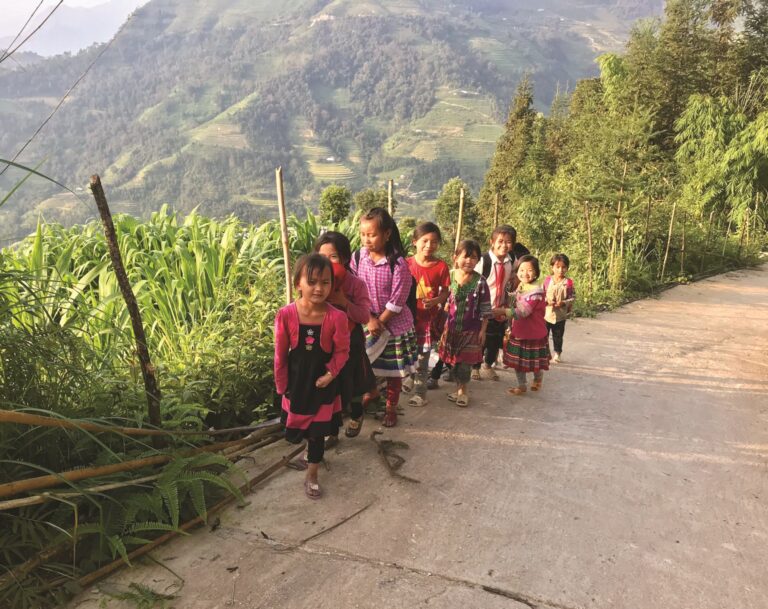
Vietnam is the first country in Asia and the second country in
the world to ratify the Convention on the Rights of the Child. (Photo: Ethnic and Development Newspaper)[/caption]
Children's rights according to the 1989 Convention on the Rights of the Child:- The right to non-discrimination for children. The basic principle of the Convention is that every child must enjoy his or her rights whether he or she is a boy or a girl, rich or poor, healthy or sick, disabled, majority or minority, religious or non-religious…
- The right to a name and a nationality. Children have the right to registration immediately upon birth, and the right to a name and a nationality from birth.
- The right to protection and care. Because they are not yet physically and mentally mature, children need special protection and care, both before and after birth. Parents are primarily responsible for the upbringing and education of their children, providing them with food, clothing and shelter.
- The right not to be separated from one parent. In cases where children live separately from one parent, they have the right to meet with the parent with whom they do not live.
- The right to health care. Parents have the right to look after the health of their children, to keep them clean, to have them vaccinated and, in case of illness, to take them to health centres where they can be cared for.
- The right to education. Children should receive the education they need to develop physically, mentally and socially, become responsible citizens and respect the rights of others.
- Children's rights in school. It is the duty of teachers to teach and teach well, and not to harm or insult children when disciplining them. Parents need to cooperate with the school in supervising to ensure this is done.
- The right to a healthy environment. Children have the right to live and enjoy a healthy and natural environment. To achieve this, adults have the responsibility to guide and educate children to preserve nature, water, air, trees and animals.
- Right to recreation. Children have the right to play, recreation and to engage in any activity necessary for their physical and mental development.
- Right to information. Children have the right to read books and newspapers, watch television programs and listen to radio programs appropriate to their age.
[caption id="attachment_600713" align="alignnone" width="768"] 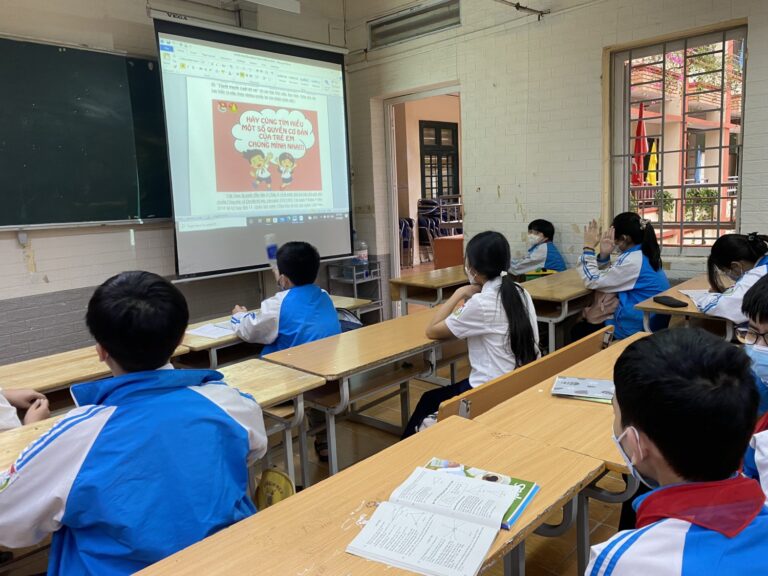 Conducting propaganda on the Law, rights and duties of children. (Photo: Nguyen Trai Secondary School Union)[/caption]
Conducting propaganda on the Law, rights and duties of children. (Photo: Nguyen Trai Secondary School Union)[/caption]- Right to organize meetings. Children also have the right to freely associate and assemble in groups with common interests and to organize peaceful meetings.
- The right to express opinions freely. In all decisions affecting children, whether made in the family, at school, in the courts, in hospitals or in any other institution, adults must listen to children and do what is best for them.
- The right to protection from abuse. No one has the right to harm children. It is our duty to respect and protect them.
- The right to protection against sexual abuse. Parents have a duty to protect their children from all forms of sexual abuse (from innuendo, fondling, touching to depraved exhibitionism and rape).
- The right to adoption. Children who, for whatever reason, do not have parents, have the right to a family and to be legally adopted. All acts of buying and selling children are prohibited. Remember that child trafficking is a crime.
- The right to special care. Children who are blind, deaf, need a wheelchair, crutches or assistive devices, are mentally retarded or have a mental illness, have the right to be loved, cared for, respected, rehabilitated and given the opportunity to work because they are valuable in their own right, according to their inherent abilities.
- The right to protection from exploitation. It is forbidden to exploit children, force them to beg, or work for the personal gain of adults. This is child exploitation. No one has the right to do that, not even parents.
- The right to be protected from economic exploitation. Girls and boys from 15 years of age and above, due to the need to work early, must have a special working regime, only doing work within their capacity, in a place that is not dangerous and not toxic.
- Children and residential life. Children who, for whatever reason, are placed in a hospital or a correctional facility have the right to be treated well, to be told why they are there and when they can leave, to be respected as human beings, to be loved and to have every opportunity to develop and improve.
- Protect children from all forms of torture and cruel treatment. All forms of humiliating, cruel and inhuman treatment of children are prohibited, such as burning, tying, beating with sticks and other objects. Adults have a duty to protect children and report to the authorities if they know of someone committing such crimes.
- When children commit crimes. The law stipulates that no child may be arrested or detained in a police station or detention center without a decision of detention or temporary detention by a competent State agency. No child may be considered guilty and punished without a court decision.
- Protecting children from drugs. Parents or guardians must always be vigilant, educate and guide children to prevent them from consuming and using drugs, tobacco, alcohol and any other products that are harmful to their health.
It can be said that the 1989 Convention on the Rights of the Child covers all aspects of children's rights. In addition to the definition and general principles of protecting children's rights, the Convention also mentions protection measures for refugee children, children in areas of
military conflict, exploited children and children of ethnic minorities. The 1989 Convention on the Rights of the Child is a multilateral international treaty that reflects the importance of protecting children's rights as well as the concern of countries for the younger generation.
Tra Khanh  Vietnam is the first country in Asia and the second country in the world to ratify the Convention on the Rights of the Child. (Photo: Ethnic and Development Newspaper)[/caption] Children's rights according to the 1989 Convention on the Rights of the Child:
Vietnam is the first country in Asia and the second country in the world to ratify the Convention on the Rights of the Child. (Photo: Ethnic and Development Newspaper)[/caption] Children's rights according to the 1989 Convention on the Rights of the Child:Conducting propaganda on the Law, rights and duties of children. (Photo: Nguyen Trai Secondary School Union)[/caption]




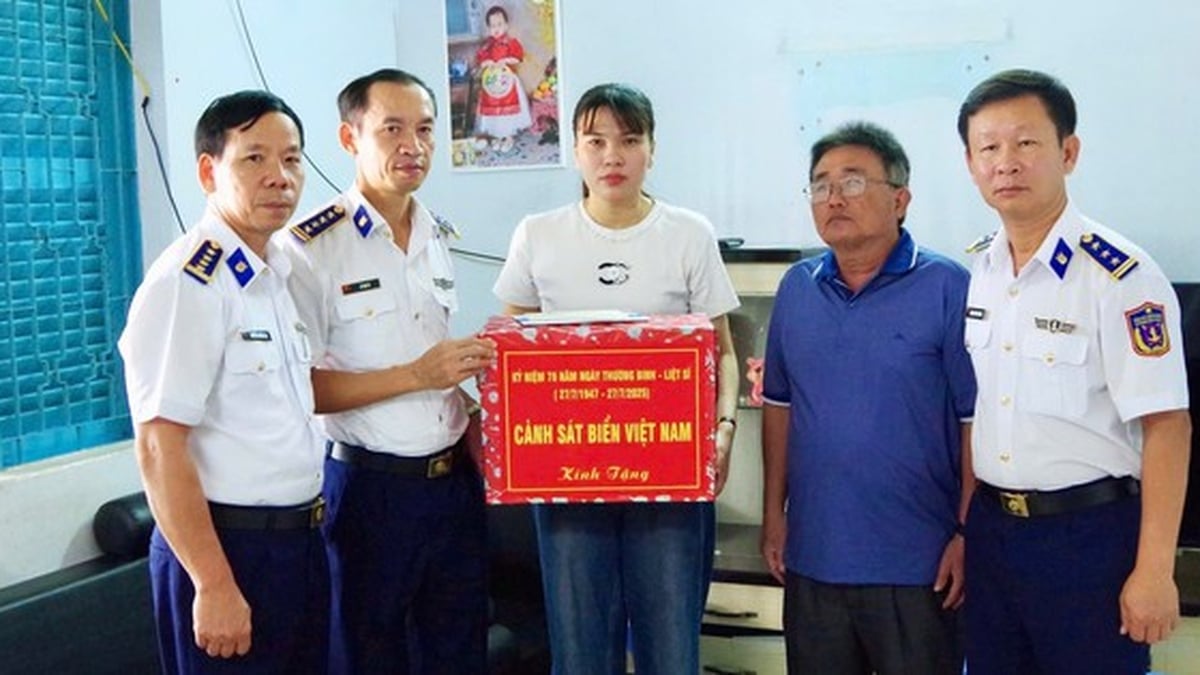
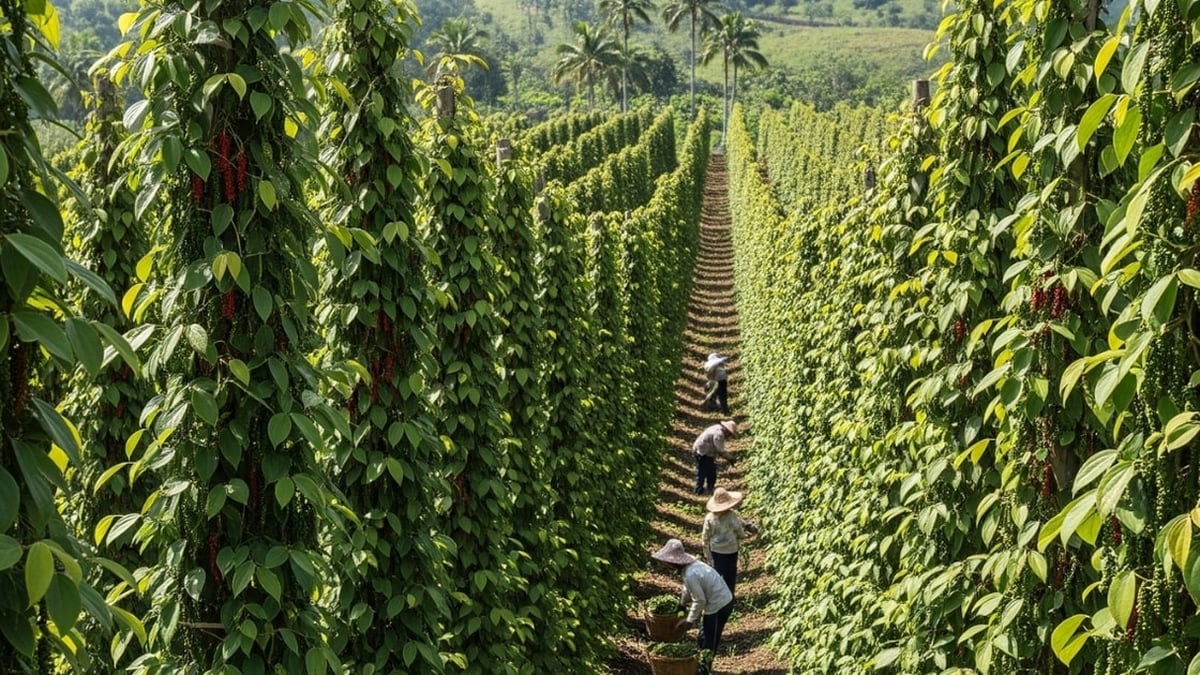
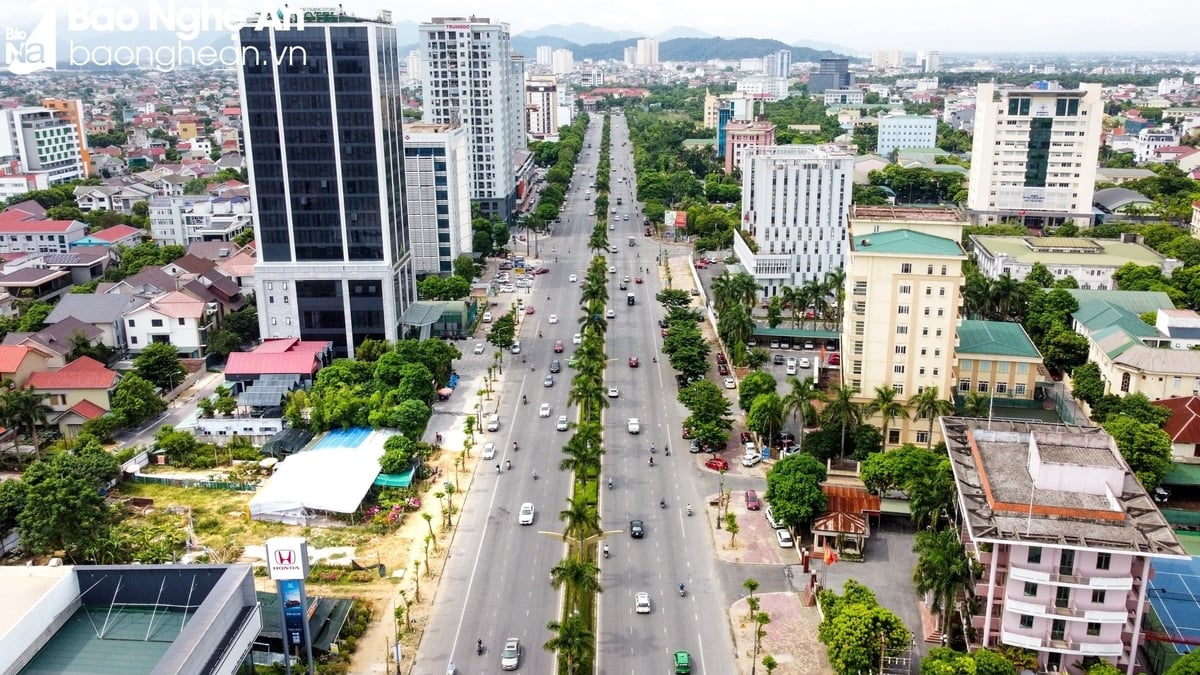



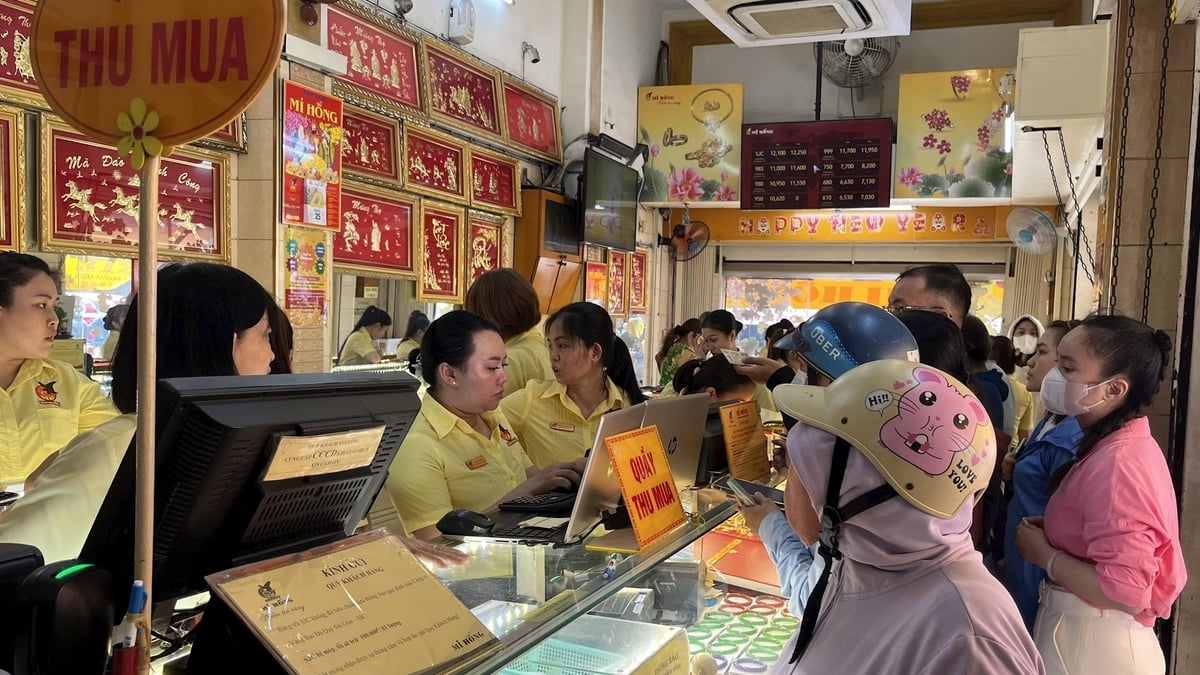
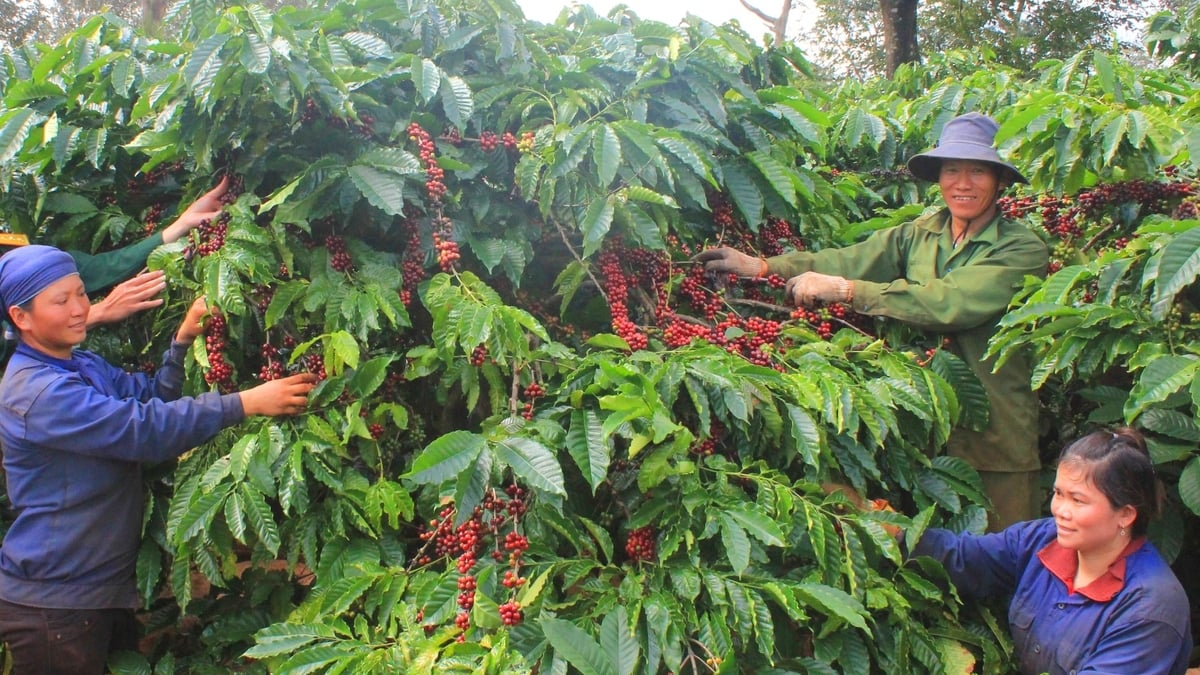























































































Comment (0)